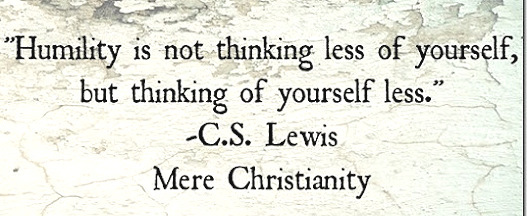

In my blog of two weeks ago, we began this series by looking at how people responded to Jesus’ raising of Lazarus from the dead. We first looked at those whose personal ambitions were more important than grasping the truth of God. This is clearly still a barrier in people’s lives today.
Last week we considered those who wanted to believe, but ultimately refused to because “they loved the approval of man more than they loved the approval of God.” Many of us allow the approval of other people to set the boundaries of our faith.
John 11:45 says that many Jews who witnessed the raising of Lazarus “believed in Him.”
In the New Testament we see the word “believe” used quite frequently. Most of us are comfortable with the idea of believing in Jesus. Believing is a non threatening, pleasant, almost friendly word. But there is real confusion over what it means to genuinely believe — and have faith in Christ.
Dr. Dallas Willard points out the difference between simply professing belief and having the kind of belief that Jesus speaks of in the Bible.
Professing belief is when we mentally agree to a tenet or statement as factually true. It’s an acknowledgement that we believe an idea or assertion is valid. However, this type of belief does not impact the essence of who we are.
The New Testament Biblical word for “belief” is the Greek word, pisteuo, and it has a much more dynamic meaning. Pisteuo is a belief that transforms us so that our whole being is set to act and follow what we consider to be true.
Willard tells the story of his father and one of his beliefs. According to him, his father believed and acknowledged that smoking, in the abstract, was harmful to one’s health, yet he nevertheless smoked two packs of cigarettes per day, well into his seventies. One day, while at the Veteran’s Hospital, Willard’s father noticed a man who was smoking with the assistance of a machine even though his lips had been eaten away by cancer. Willard says that, for the first time ever, his father saw the dangers of smoking, and he truly believed it. He never smoked another cigarette in his life.
This is what true belief does. It converts the heart. It transforms the direction that our lives are going. And, in contrast, this illustrates how a professing belief is no belief at all.
Another way to illustrate the essence of true belief is to consider our physical health. Imagine that one morning we were to awaken and find a severe pain in our abdomen. We immediately recognize that something is terribly wrong, so we rush to our local physician, and he sends us to a specialist who then runs a battery of tests. The specialist tells us that we have a form of cancer that, if left untreated, will allow us a year to live. Alternatively, we are told that with surgery, chemotherapy, and a strict diet, we can expect a full recovery.
We leave his office quite relieved because we believe that what the doctor has told us is true. We share our good news with others. However, professing belief in what the doctor has told us is worthless until we entrust our lives to his care. We must surrender our physical well-being to this physician and be willing to follow him and his guidance. In essence, we give our lives to his care.
This understanding of what it means to believe should enable us to better comprehend the words of Jesus. In fact, I contend that Christ used this type of language to make sure we clearly distinguish between a belief that is merely professed, and true belief that converts the heart.
This is clearly seen in the life of C. S. Lewis. His conversion to Christianity provides a clear picture of true faith. For years an outspoken atheist, Lewis became more intrigued with theism as he observed many of his friends, intelligent scholars, become Christians. After several years of resistance, Lewis said, “I gave in and admitted that God was God.” However, it’s important to note that, with that admission, Lewis then knelt and prayed, and he gave Christ the rightful place of preeminence in his life.
Lewis had a clear understanding that putting your faith in Christ was more than just believing, and it was more than just trying to live a good life. It is a surrendering of the heart, a letting go of the self. As Lewis articulated it in his classic work, Mere Christianity:
The terrible thing, the almost impossible thing, is to hand over your whole self – all your wishes and precautions – to Christ. But it is far easier than what we are trying to do…to keep personal happiness as our great aim in life, and yet at the same time, be “good.” This is exactly what Christ warned you that you could not do.
So the question that we all must ask is this: AM I A TRUE BELIEVER? Or are there barriers in my life that are keeping me from a life-changing relationship with Christ.
Add grace and understanding to your day with words from Richard E. Simmons III in your inbox. Sign-up for weekly email with the latest blog post, podcast, and quote.

Black Friday Sale! ALL books 40% off! Use Promo code SAVE40 Shop Now
Bulk discounts for 25 or more books! Call 205-789-3471 for prices.
For local orders in the Birmingham, AL area, enter Promo Code LOCAL at checkout to save shipping. We will email you when your order is ready for pickup.